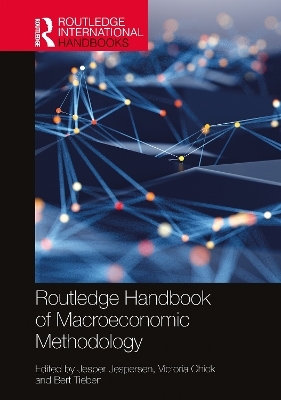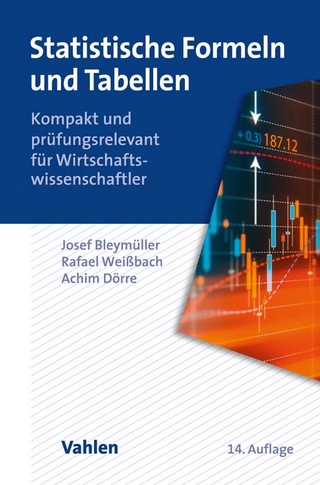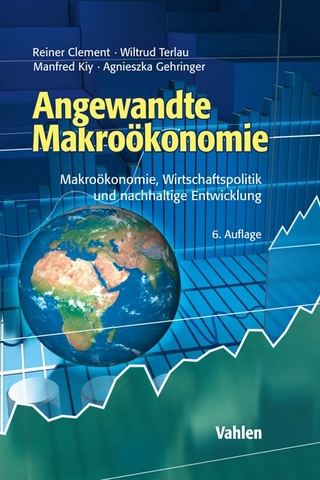
Routledge Handbook of Macroeconomic Methodology
Routledge (Verlag)
978-1-032-46349-0 (ISBN)
The present macroeconomic crisis has demonstrated that a deeper understanding of the importance of relevant macroeconomic theories and methods is wanting. Additionally, lack of methodological awareness is behind much of the disagreement within macroeconomics which, looked upon from outside, often appears incomprehensible.
The Handbook gives a structured presentation of the study of principles and procedures by which macroeconomics is researched, taught and communicated both within academia and to a wider audience, and why specific theories, research strategies and teaching are preferred. The principles of selecting theory relevant to real-world problems are the core of methodology. This book contains a broad range of arguments behind theory construction and appraisal and the consequences of these choices within the field of macroeconomics.
An international range of experts provide clear analysis of key concepts, ideas and principles to give academics, students and others a better understanding of the macroeconomics behind policy conclusions which are put forward at different levels.
Jesper Jespersen is professor emeritus at Roskilde University, Denmark. His research interests include the economics of Keynes and macroeconomic methodology. Victoria Chick is professor emeritus at University College London, UK. She has written extensively on macroeconomics and the economics of Keynes. Bert Tieben is researcher at SEO Amsterdam Economics, the Netherlands. He also teaches history of economic thought at Amsterdam University College. His research focuses on economic methodology and the history of economic thought.
Introduction: The scope and content of the Handbook I. Philosophy of Science Perspectives I.1. Methodological Individualism and Macroeconomics I.2. Deduction, Induction and Abduction I.3. Instrumentalism I.4 From positivism to naturalism in macroeconomics I.5. Holism & Fallacy of Composition I.6. Macroeconomics and Ethics II. Concepts II.1 Time in Macroeconomics II.2 Uncertainty and Macroeconomic Methodology II.3 Path dependency II.4 Equilibrium II.5 Causality and macroeconomics II.6 Microeconomic foundation of macroeconomics II.7 Open and closed systems II.8. Money and Macroeconomic Methodology III. Schools of Thought III.1. Classical Political Economy III.2. Neoclassical Macroeconomics III.3. Keynes’s Macroeconomic Method III.4. Post Keynesian Methodology III.5. The Austrian Denial of Macroeconomics III.6. What was Marx’s Method, actually? III.7. Methodological Pluralism in Macroeconomics IV. Models, Econometrics and Measurement IV.1. Use of Mathematics in macroeconomic analysis IV.2. Explanation and Forecasting IV.3. Using macroeconomic models in policy practice IV.4. Traditional Methods of Macroeconometrics IV.5. Macroeconometrics: Cointegrated VAR Method IV.6. National Accounts and Macroeconomic Methodology V. Communicating Macroeconomics V.1. The rhetorical perspective on macroeconomics V.2. Teaching Macroeconomic Methodology
| Erscheinungsdatum | 17.05.2023 |
|---|---|
| Reihe/Serie | Routledge International Handbooks |
| Zusatzinfo | 3 Tables, black and white; 4 Line drawings, black and white; 4 Illustrations, black and white |
| Verlagsort | London |
| Sprache | englisch |
| Maße | 174 x 246 mm |
| Themenwelt | Wirtschaft ► Allgemeines / Lexika |
| Wirtschaft ► Volkswirtschaftslehre ► Makroökonomie | |
| Wirtschaft ► Volkswirtschaftslehre ► Wirtschaftspolitik | |
| ISBN-10 | 1-032-46349-X / 103246349X |
| ISBN-13 | 978-1-032-46349-0 / 9781032463490 |
| Zustand | Neuware |
| Informationen gemäß Produktsicherheitsverordnung (GPSR) | |
| Haben Sie eine Frage zum Produkt? |
aus dem Bereich


